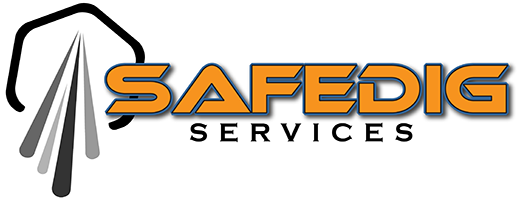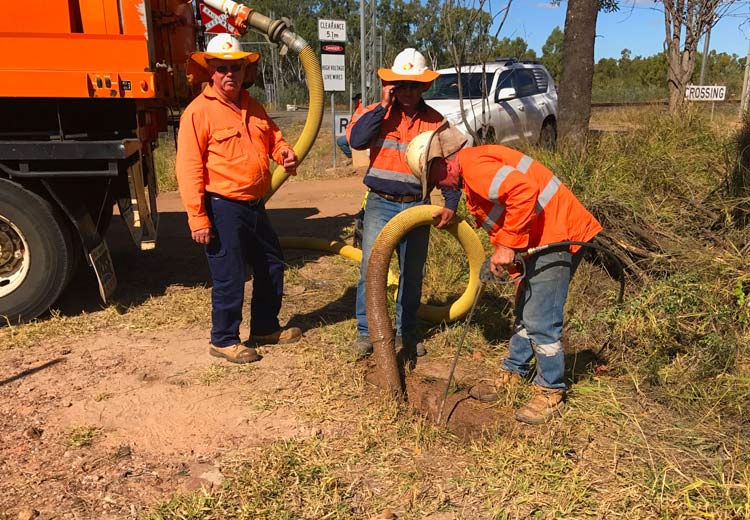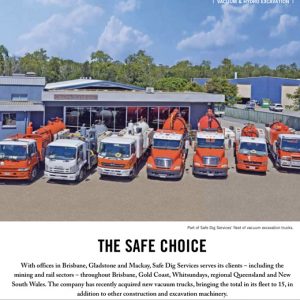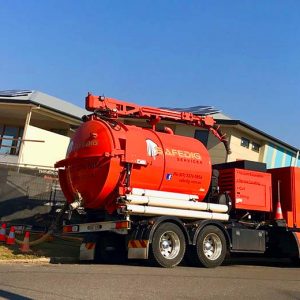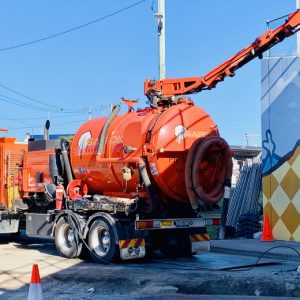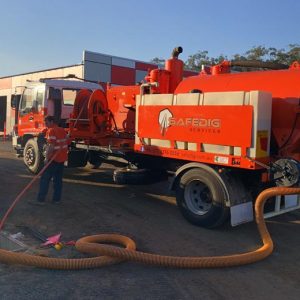Vacuum excavation is a non-destructive digging technology that improves the safety of workers on site, is more cost effective and importantly, vacuum excavation is significantly more environmentally friendly than conventional digging machinery.
Looking at the equipment we’ve been using here at Safe Dig Brisbane since 1994; vacuum digging requires a specially equipped vacuum excavation truck with a water tank and a debris tank that allows us to penetrate and vacuum up the earth, clay, stone, gravel and rock out of the ground. The main reasons for vacuum digging are to create a hole, trench or reveal the picture below with non-destructive, low evasive digging technology that is extremely safe.
The top 5 benefits of using vacuum digging at your site include:
1. Less invasive technology and faster results when compared to traditional methods of digging and older excavation equipment.
2. High precision digging and locating, meaning lower risks of personal injury or work site issues such as hitting electricity or sewer pipes.
3. Vacuum digging requires less manpower when compared to conventional digging equipment and methods.
4. Dirt and dust is stored in the vacuum excavation trucks debris tank keeping the area clean and providing minimal disruption to traffic and the public.
5. Safe Dig has over 30 years experience in telecommunications, construction, underground service locating and vacuum excavation.
At Safe Dig, our national certifications include Telstra, Energex, Ergon, Energy, BMA and Thiess. We are also currently the only accredited Optus locating contractor for optic fibre in Brisbane and Mackay, although we service Brisbane, the Gold Coast, New South Wales, Gladstone, the Whitsundays region and Queensland, with offices in Brisbane, Mackay and Gladstone.
The History Of Vacuum Excavation
Advancements in Vacuum digging have made it the go-to technology for non-destructive ways to safely locate utilities and excavate an area with the utmost precision. Vacuum digging is now regarded throughout Brisbane, Australia and the world as being the safest and most effective way of excavating.
Vacuum digging technology can be traced back to the 1960’s with catch basin cleaners, but the technology at the time was too crude, like most new technology when it’s first released. Perhaps you remember the first computer, it was a room full of glowing valves and far from the technology we have today.
And so with the advancements in suction excavation in the 1970s and 1980s, we saw vacuum digging trucks primarily used as sewer cleaning vehicles. It was only in the 1990s that the technology was soo good, that commercial demand for vacuum excavation was prevalent. During this time, vacuum digging machines were used for industrial and commercial use, but it wasn’t until the last 10-15 years that vacuum excavation trucks reached Australia for all kinds of excavation projects, and quickly gained popularity.
Vacuum Excavation V.S. Traditional Digging Machinery
The popular belief is that traditional excavation is cheaper than vacuum excavation, and if we only look at the digging component it may be in some cases. However, the traditional digging equipment does not include the cost of dirt removal, which in most cases is a major factor and why vacuum excavation services are rather cost effective.
Then you need to consider the cost benefits of vacuum excavation due to its lower risk for underground utilities damage, higher worker safety and far fewer potential liability issues. The pros for using vacuum excavation quickly add up.
Contact Queensland’s Premier Vacuum Excavation Team
Some of our clients include All-Roads, Aurizon (level 3), Queensland Rail, Lendlease, BMD Constructions, QBC, Shamrock, Shadforth Civil, GHD Engineering, major and regional councils and hundreds of other private projects and clients.
If you have a project that requires digging, please just get in touch with our friendly team today on 07 3376 0856 or email us now on: [email protected]
